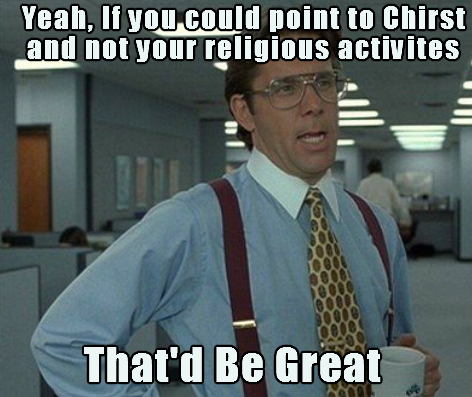 Now John’s disciples and the Pharisees were fasting. And people came and said to him, “Why do John’s disciples and the disciples of the Pharisees fast, but your disciples do not fast?” And Jesus said to them, “Can the wedding guests fast while the bridegroom is with them? As long as they have the bridegroom with them, they cannot fast. The days will come when the bridegroom is taken away from them, and then they will fast in that day. No one sews a piece of unshrunk cloth on an old garment. If he does, the patch tears away from it, the new from the old, and a worse tear is made. And no one puts new wine into old wineskins. If he does, the wine will burst the skins—and the wine is destroyed, and so are the skins. But new wine is for fresh wineskins.”
Now John’s disciples and the Pharisees were fasting. And people came and said to him, “Why do John’s disciples and the disciples of the Pharisees fast, but your disciples do not fast?” And Jesus said to them, “Can the wedding guests fast while the bridegroom is with them? As long as they have the bridegroom with them, they cannot fast. The days will come when the bridegroom is taken away from them, and then they will fast in that day. No one sews a piece of unshrunk cloth on an old garment. If he does, the patch tears away from it, the new from the old, and a worse tear is made. And no one puts new wine into old wineskins. If he does, the wine will burst the skins—and the wine is destroyed, and so are the skins. But new wine is for fresh wineskins.”
Understanding And Applying the Text
This account is recorded by Mark, Matthew, and Luke. Matthew has the disciples of John coming to Jesus. Luke has the Pharisees coming to Jesus. Mark appears to connect both.
The Pharisees tried to draw John’s disciples in opposition to Jesus. They tried to start an argument between John’s disciples and Jesus disciples.
They came to Jesus and asked, “Why aren’t your disciple pious?” Fasting was a sign of contrition and penitence. Fasting was a part of the old testament piety as early as the Judges. But, God’s Law required only required one fast per year. That was on the Day of Atonement.
The Pharisees fasted twice a week. John’s message centered around repentance. So fasting was appropriate for his disciples. Jesus’ message included repentance, But He did not insist on fasting.
We need to be on guard. Satan will try to cause division among us. They will do so by insisting we follow certain ceremonies. This can cause us to major on the minors. We treat the unimportant external things paramount. While we act as if God’s grace, which He gives without condition, which is the cause of our salvation, is of minor importance.
When we find something we think we ought to do or not do, we attempt to make it a law for everyone else. That is nothing more than pride. Pride causes us to try and compel others to copy our example. We are to point to Christ. He is the only one who is holy. We are to encourage others to follow Christ, not ourselves. We and not holy nor righteous.
When we insist on external ceremonies we place our faith in superstition. Not everyone has the same strength of weaknesses. We place a burden on the backs of those who may not be able to bear it when we insist others follow our ceremonies.
Jesus’ reply sets Him apart from everything that came before. The “bridegroom” had come. This was a time of celebration. Jesus affirmed the presence of the kingdom. That was cause to celebrate not mourn. Jesus ate and drank with sinners. He brought joy and salvation to them.
To illustrate His point Jesus used two examples. He took one from clothing. The other He took from wine vessels.
Some think Jesus equated worn-out cloth and decayed wine skins to the Pharisees. And He equated new wine and fresh clothing for the gospel. This reasoning is unsound.
The Pharisees were talking about Jesus disciples. Jesus answer explained why His disciples did not fast. The old wineskins and worn out clothing were comparisons to Jesus disciples. Jesus did not mean they were wasted and worthless. He meant they were worn out. They were tired and needed strengthening.
We should point others to Christ, not our “religion,” or ceremonies. Let us instead celebrate the gospel with them. We have nothing to give. We can only point to the giver of grace and mercy.
Leave a Reply